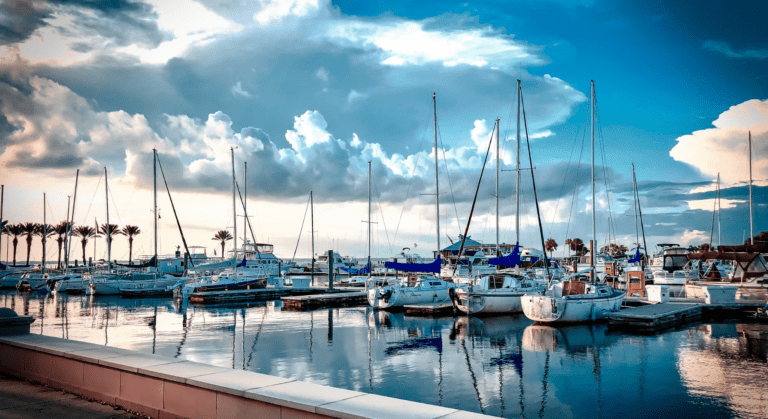The Unwritten Rules of the Water
Etiquette isn’t just polite behaviour and waving back at your fellow boaters. Etiquette also means safety for yourself, your crew, and the other boaters around you. You should learn the basics of the sport if you are just starting out. Even if you’re a seasoned captain, it’s still a good idea to do a quick review of the basics.
Below you’ll find some boating etiquette basics, so you can avoid being ‘that’ boater everyone loves to hate.
Boat Launch and Dock Etiquette
- When you’re retrieving or launching your boat from a ramp, make sure you are doing so efficiently, so others get their turn.
- Reduce your ramp time by pulling over to a beach or dock once you’ve unloaded the trailer. Then load guests and other gear there. While you’re on the ramp, don’t drain, clean, or unload your boat.
- If you are filling up at a fuel dock, get your fuel, pay your bill and move on.
On the Water
Now that you’re out on the waters, it’s even more important to keep an eye out for other boaters.
- The vessel that approaches you from the right has the right of way- “the stand-on vessel”. The vessel that is a “give-way vessel” must accommodate the other.
- If there are two boats approaching head-on, it is best for both to turn to starboard and move port to port. This way, it’s easy to determine the intentions of each captain so that a collision can be avoided.
- A sailboat that is under sail has priority over a powerboat. It is considered a powerboat if it has an engine and sails are up.
- Your responsibility is to keep your speed and course when you are being overtaken. If you find yourself in this situation, slow down and let the other person go. Captains have the responsibility to avoid collisions regardless of who has the right of way.
- Canoes, SUPs, kayaks, and other human-powered vessels, have the right of way over any other vessel including sailboats. You should take care of another vessel whose manoeuvrability is limited by its size, draft, or other reasons.
- If two boats are sailing together, the boat on the starboard tack (wind blowing over the starboard side of the deck) has the right of way over the one on the port tack. If both boats are in the same direction, the leeward boat (downwind) has the right of way.
Anchorage Rules
- You should follow the rules of other boats when entering an anchorage. This includes how you tie off, how long you use, and how far you will allow for other boats. Do not set more than one anchor if everyone is using the same anchor. You could cause a collision with other boats if the wind changes, causing you to move in a different way.
- Respect your anchorage neighbours. Keep your music to yourself during the late hours.
- Do not drive fast through an anchorage as people may be swimming or snorkelling, making them difficult to spot.
- You must be careful not to cause damage to smaller boats. Speed limits may apply in some harbors, know them and respect them.
- Respect other boaters and the environment. You shouldn’t toss your trash in the ocean. In an anchorage or harbor you don’t want to let anyone swim in your lunch. Plastic never goes overboard in any situation.
For more great information on how to anchor a boat, head here.
Offering Help
- Offer to help catch the dock lines of a vessel coming to dock. If the captain or crew waves you off, understand that they have a method, and aren’t seeking your assistance.
- You are legally required to stop and assist vessels in distress while you’re out on the sea.
- Make sure you are always prepared for an emergency.
VHF Radio Conduct
Your VHF radio is an essential piece of boating equipment. It should be used correctly. If you are a new cruiser, it is a good idea to brush up on boating terminology. In an emergency, you’ll need to be familiar with the most used words and phrases.
These are some things you should remember when using your VHF radio:
- Your VHF radio should only be used for emergencies. Do not block the lines for anyone who might need them.
- Use the radio with calmness and clarity.
- Before you use someone else’s channel, get permission.
- Do not interrupt a conversation already in progress.
- When using the radio, always identify yourself by stating your call sign and boat name.
Educate Your Guests
Do you plan to bring a few of your friends along on the boat? Your passengers should be familiar with the boat, including where it is, where it is located, how to get around safely, and what to do in case of an emergency. Make sure your guests know where their lifejackets are. Make sure to explain to guests when they will need to sit down, such as when you encounter another boat’s wake or accelerate.
Not only is it important to understand boating etiquette, but you also need to know how to avoid boating accidents. These are our 5 top boating safety tips.
Have you checked your pleasure craft cover?
Before you get out on the water, it is a good time to make sure your boat is adequately covered with the right boat insurance.
Our underwriters care about making sure you’re covered for the stuff that matters, so you have peace of mind out on the water.
Contact Coast Insurance to get started, and stay safe out there!

